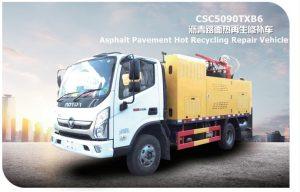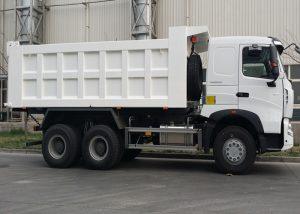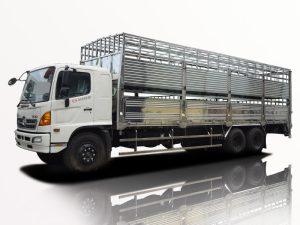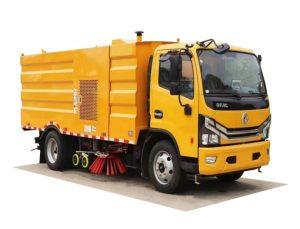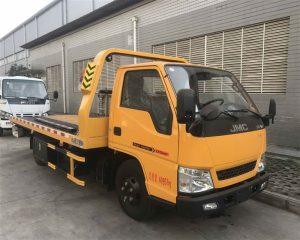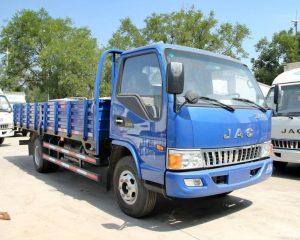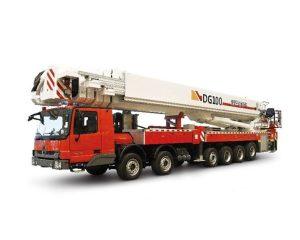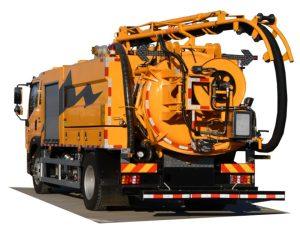Monday to Saturday - 8:00 -17:30
Understanding Oilfield Vacuum Trucks: Essential Equipment for the Oil and Gas Industry
In the oil and gas industry, efficient waste management is crucial for maintaining safety and compliance with environmental regulations. One of the key pieces of equipment used for this purpose is the oilfield vacuum truck. These specialized vehicles have become indispensable in the extraction and processing of oil. In this article, we will explore what oilfield vacuum trucks are, their functions, benefits, and various applications, along with practical examples and tips for their use.
What Are Oilfield Vacuum Trucks?
Oilfield vacuum trucks are heavy-duty vehicles equipped with large vacuum tanks designed to suction, transport, and dispose of liquids, sludge, and solids. They play a vital role in managing waste in oil drilling, production sites, and refineries. These trucks can manage various waste types, including produced water, drilling fluids, and other hazardous materials that require careful handling to prevent environmental contamination.
Key Components of Oilfield Vacuum Trucks
- Vacuum Tank: The primary component, often made of durable materials such as steel, designed to withstand the pressures and weights of the waste materials.
- Pump System: A powerful pump that creates a vacuum to suck up waste materials and store them in the tank.
- Hoses and Fittings: Various hoses are utilized for suction and discharge, often customized for the specific job requirements.
- Vehicle Chassis: A robust truck chassis capable of carrying heavy loads under rugged conditions.
- Control System: Equipped with controls for regulating the vacuum pressure and monitoring tank levels.
Functions of Oilfield Vacuum Trucks
The versatility of oilfield vacuum trucks allows them to perform several critical functions within the oil and gas sector. These functions include:
1. Waste Collection and Transport
Oilfield vacuum trucks efficiently collect waste materials from drilling rigs and production facilities, ensuring that hazardous substances are safely transported to disposal sites. This minimizes the risk of spills and environmental damage.
2. Liquid Waste Management
These trucks are integral in managing produced water, a byproduct of oil extraction. The trucks can transport this water for disposal or treatment, depending on regulatory requirements.
3. Sludge Removal
Drilling operations often result in the accumulation of sludge, which must be removed regularly. Vacuum trucks can handle this solid waste, ensuring clean and safe working conditions.
4. Emergency Spill Response
In the event of an oil spill or other emergency, vacuum trucks can be deployed rapidly to contain and remove hazardous materials, helping to mitigate environmental damage.
5. Environmental Compliance
Using vacuum trucks helps companies comply with environmental regulations by ensuring proper waste management practices are in place, reducing the risk of fines and operational shutdowns.
Types of Oilfield Vacuum Trucks
Oilfield vacuum trucks come in various types, each designed for specific tasks and operational needs. Here are the most common types:
1. Standard Vacuum Trucks
These are the most common types found in oilfields. They can handle various waste types and are built for general-purpose use in oil and gas operations.
2. Hydro-Vac Trucks
Hydro-vac trucks use a combination of high-pressure water and vacuum suction to dig and remove soil, which is essential for excavating around sensitive pipelines without causing damage.
3. Liquid Vacuum Trucks
Specialized for transporting liquids, these trucks are equipped with high-capacity tanks and pumps that handle liquids like produced water and drilling fluids.
4. Vacuum Tankers
These are larger vacuum trucks specifically designed to transport large volumes of waste. They are often used in major oil fields with high-volume output.
Benefits of Using Oilfield Vacuum Trucks
Employing oilfield vacuum trucks offers numerous benefits:
1. Enhanced Safety
By effectively managing waste materials, vacuum trucks help maintain a safer work environment, reducing the risk of accidents caused by spills or hazardous materials.
2. Environmental Protection
Oilfield vacuum trucks prevent harmful substances from contaminating the surrounding ecosystem, helping companies adhere to environmental regulations and participate in sustainable practices.
3. Cost-Effectiveness
The use of vacuum trucks can minimize operational disruptions caused by waste accumulation and potential environmental liabilities, leading to long-term savings.
4. Increased Efficiency
These trucks allow for quicker cleanup and waste management processes, enabling oil companies to maintain productivity and focus on extraction activities.
Practical Examples of Oilfield Vacuum Truck Use
Understanding practical applications can highlight the importance of oilfield vacuum trucks in real-world scenarios:
1. Case Study: Sludge Removal at a Drilling Site
In a recent operation on a drilling site in Texas, an oil company utilized vacuum trucks to remove accumulated sludge from the production pits. The timely removal led to uninterrupted drilling operations and maintained regulatory compliance.
2. Incident Response: Oil Spill Mitigation
When a spill occurred at a well site in North Dakota, vacuum trucks were deployed within hours to contain and remove the spilled oil, preventing serious environmental damage and allowing the company to address the incident promptly.
Tips for Choosing the Right Oilfield Vacuum Truck
Selecting the right vacuum truck for your needs is crucial for operational efficiency. Here are several tips to guide your choice:
- Consider Capacity: Choose a truck with a tank size appropriate for your waste management needs.
- Evaluate Pump Power: The suction capacity should match the type and volume of waste being handled.
- Look for Specialized Features: Some tasks may require hydro-vac capabilities or other specialized equipment.
- Check Compliance: Ensure the truck meets all local and federal regulations regarding waste management.
- Review Maintenance History: A well-maintained truck is crucial for reliability and efficiency.
Cost Considerations for Oilfield Vacuum Trucks
Investing in oilfield vacuum trucks involves various costs that must be considered. Below is a breakdown of common expenses:
| Cost Type | Estimated Cost |
|---|---|
| Purchase Price | $100,000 – $300,000 |
| Lease Costs | $3,000 – $6,000/month |
| Insurance | $1,500 – $3,000/year |
| Maintenance | $5,000 – $10,000/year |
Maintenance Best Practices for Oilfield Vacuum Trucks
Regular maintenance is vital to ensure the longevity and efficiency of oilfield vacuum trucks. Here are some best practices:
1. Routine Inspections
Regularly inspect the vacuum system, hoses, and pump for any signs of wear or damage that could affect performance.
2. Tank Cleaning
Periodic cleaning of the vacuum tank is essential to prevent the buildup of residual materials that could cause corrosion or contamination.
3. Oil Changes
Regularly change the oil in the truck to ensure the engine and equipment operate smoothly and to prevent breakdowns.
4. Training Operators
Ensure operators are trained to use vacuum trucks effectively, which includes understanding safety protocols and maintenance checks.
FAQ Section
1. What types of waste can oilfield vacuum trucks handle?
Oilfield vacuum trucks can handle a variety of liquids, sludge, drilling fluids, and produced water.
2. How often should oilfield vacuum trucks be maintained?
Regular maintenance should occur as per the manufacturer’s recommendations, typically every few months, or based on usage frequency.
3. Can oilfield vacuum trucks be rented instead of bought?
Yes, many companies offer oilfield vacuum trucks for rent, which can be a cost-effective solution for short-term projects.
4. What safety measures should be followed when using vacuum trucks?
Operators must wear appropriate safety gear, follow safety protocols, and ensure the truck is regularly inspected and maintained.
5. How do I choose the right vacuum truck for my operation?
Consider factors such as tank capacity, pump power, and specific features required for your waste management needs.
6. Are hydro-vac trucks more expensive than standard vacuum trucks?
Yes, hydro-vac trucks typically have higher upfront costs due to their advanced features and capabilities, but they can offer more versatility in sensitive excavation situations.


